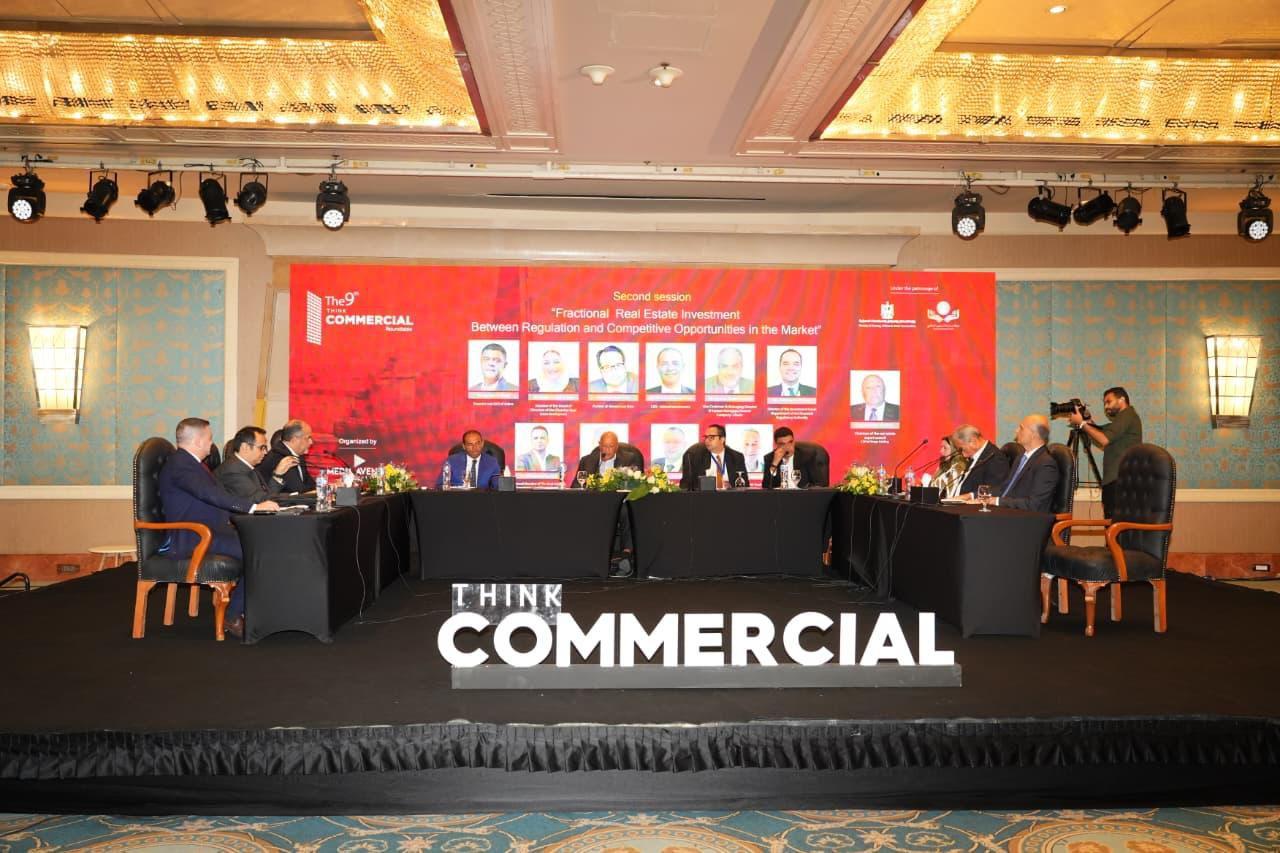
Think Commercial Concludes With Key Recommendations To Boost Fractional Real Estate Investment
Hesham Shoukry, Chairperson of the Real Estate Export Council, explained that fractional real estate investment - which allows individuals to purchase part of a residential unit or property and offer it for sale or lease through a third party - has witnessed several unregulated practices in recent years. This, he said, has made the introduction of legislation essential to bring order to the market. He noted that his participation in several sessions with the Financial Regulatory Authority (FRA) had contributed to the development of a new law regulating fractional real estate investment and defining the roles of its various stakeholders.
Building on this, Moatasem Ahmed, Director of the Investment Funds Department at the FRA, outlined the details of the new amendments approved for the establishment of real estate funds, the issuance and trading of their certificates, and the regulation of electronic platforms for fractional ownership. He stressed that all such platforms will fall fully under the FRA's oversight, ensuring transparency and investor protection.
The session titled“Fractional Real Estate Investment: Between Regulation and Competitive Market Opportunities” also shed light on the financial challenges hindering growth. Ayman Elsawy, Founder and CEO of Bokra Holding, pointed out that liquidity pressures continue to affect real estate fund performance, as high interest rates have led many investors to prefer bank certificates of deposit. Resolving these liquidity challenges, he argued, would help increase trading volumes in real estate funds.
From a broader perspective, Ahmed Abou El Saad, CEO of Azimut Egypt, observed that the capital market has witnessed significant growth in recent years, particularly with the introduction of investment funds as a mechanism for pooling investments. He highlighted the FRA's pivotal role in enabling this progress through legislation and oversight that ensure proper practices. However, he cautioned that the key challenge remains the provision of facilities that make it easier for investors to buy and resell real estate units at a clear value - a step he believes is vital to boost investor confidence and ensure market sustainability.
Echoing this optimism, Abeer Essam, Board Member of the Real Estate Development Chamber, said that investment funds and fractional ownership platforms offer developers an important opportunity to expand sales and reach new investors. She explained that such mechanisms ease the burden on developers by shifting marketing and financial management to specialised platforms, allowing developers to focus on project execution.
In a similar vein, Ehab Rashad, Vice Chairperson of Mubasher Capital Holding, emphasised that the issuance of a comprehensive law regulating real estate funds and fractional property investment would provide much-needed stability. He explained that the process of converting assets into tradable electronic certificates is still evolving and requires careful study to ensure it strengthens, rather than disrupts, the market.
Turning to financing solutions, Ayman Abdel Hamid, Managing Director and Vice Chairperson of Al-Tameer Mortgage Finance – Al Oula, proposed closer cooperation between mortgage finance companies and real estate funds in asset evaluation prior to trading. Such collaboration, he suggested, would bring greater discipline to the market and generate mutual benefits for all parties involved.
From a legal standpoint, Hossam Gramon, Partner at ADSERO – Ragy Soliman & Partners, shared his firm's successful experience working with the FRA in the area of shared ownership. He argued that expanding fractional investment into new sectors such as education, healthcare, and sports could further enhance the effectiveness of the market.
Sector-specific opportunities were also highlighted. Asser Hamdy, Member of the Tourism Committee at the American Chamber of Commerce, discussed the potential of fractional ownership in the tourism sector, noting the strong demand for hotel units. Meanwhile, Ayman Sami, Head of JLL Egypt, placed the discussion in an international context, stressing that fractional ownership is expanding rapidly worldwide. He pointed to innovative experiments using artificial intelligence to maximise benefits across different fields, calling for Egypt to study these global experiences and adapt the most relevant practices to the local market.
Overall, the roundtable's final session underscored the growing momentum behind fractional real estate investment in Egypt. While challenges such as liquidity constraints and regulatory adjustments remain, participants agreed that proper legislation, innovative financing tools, and the adoption of global best practices could transform the sector into a powerful driver of investment and property exports.

Legal Disclaimer:
MENAFN provides the
information “as is” without warranty of any kind. We do not accept
any responsibility or liability for the accuracy, content, images,
videos, licenses, completeness, legality, or reliability of the information
contained in this article. If you have any complaints or copyright
issues related to this article, kindly contact the provider above.


















Comments
No comment